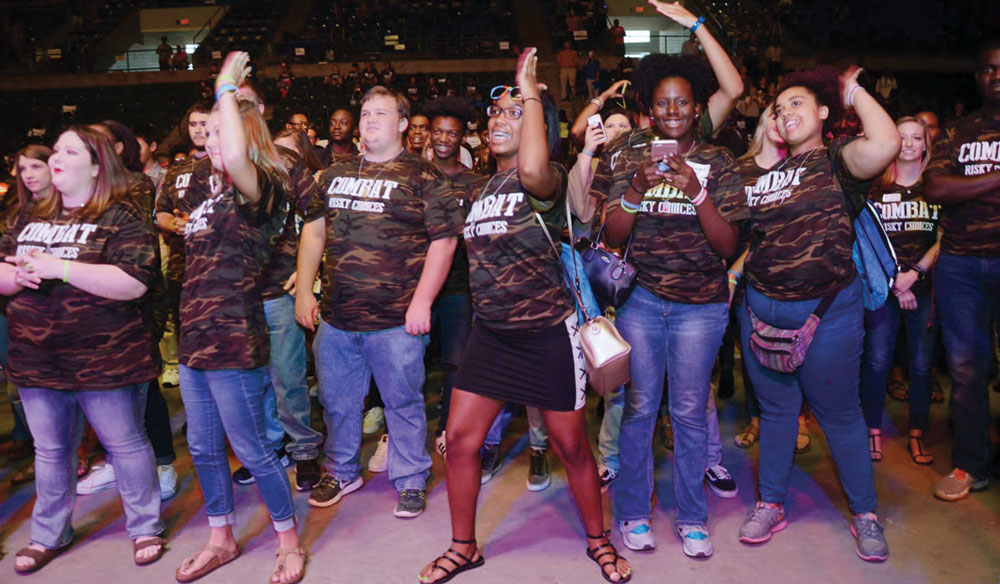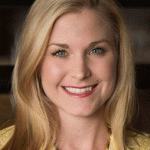By Jenny Cox Holman

Healthy Teen Rallies shine a light on bullying, suicide
Think about those days when the skies are filled with dreary, dark and daunting clouds that blanket the horizon. The sunshine cannot escape the grip of the canopy of darkness. The light of the world is hidden behind ominous clouds. The sun wants to shine, but the clouds won’t let it.
Many times in the minds and hearts of those who seek out suicide, they are looking to escape the darkness that blankets their thoughts, the sadness that fills their days and the hopelessness they feel in their lives.
Suicide has too soon ended the lives of many that were deeply loved by family members and friends left behind to suffer through deep anguish from the void left by a promising life. Suicide is now the 12th leading cause of all deaths in Mississippi. Multiple factors — such as substance abuse, mental illness, adverse childhood events, peer influences, family disruption, poverty and domestic violence exposure — contribute to these high suicide rates.
Families First for Mississippi and Healthy Teens for a Better Mississippi programs seek to provide a community of supporters through the Healthy Teen Rallies to offer avenues of hope for our youth struggling with thoughts of suicide and show there is a community who cares for those suffering from depression or peer-driven bullying.
With suicide being the third leading cause of death for 10–24 year olds in Mississippi, the program strives to inspire Mississippi’s youth at their annual Healthy Teen Rallies to be a positive beacon of hope to their peers with their words and actions, showing there is a community who cares for those suffering from depression or peer-driven bullying.
Jody Dyess, Director of Say Something School Assemblies and a popular speaker at the rallies, shares a personal testimony of the cruel and life-changing effects of cyberbullying. The cruel and taunting messages that Jody’s daughter received from peers as she was cyberbullied led her to attempt to commit suicide. “A student that is cyberbullied cannot run from it. There is no safe place, and there is no real line in the sand depicting bullying or being mean… Our daughter is now 24 years old and we still feel the effects from this event in our family. Though there are no outward scars, the emotional scars are still there and she still suffers from self-image and relationship issues,” Dyess said.
Suicide survivors and the notes left behind from those who succumb to suicide speak to the fact that most suicidal people don’t want to die — they want their pain to stop and believe that their overwhelming mental anguish or life circumstances are too burdensome.
Many times those who commit suicide feel that decisions in their life have disappointed people they love, or they may suffer from addictions, bullying, debilitating depression or anxiety that seems too hard to overcome.
“Most of the time people that kill themselves are trying to kill the part of themselves that is hurting. They either don’t know or aren’t aware of a safe place to talk about the part of them that is hurting,” said John Owen, CEAP, CAS, of Recovery Consultations.
Mississippians need to have compassion and empathy, along with being alert to recognize warning signs, to become aware of those who may be susceptible to suicide.
Warning signs of suicide include behavioral changes, mood changes and how a person talks. Behavioral and mood changes can manifest as an increased use of alcohol or drugs, aggression, depression, humiliation, anxiety, withdrawing from activities, isolating from family and friends, sleeping too much or too little, visiting or calling people to say goodbye, giving away prized possessions and looking online for ways to kill themselves.
Paying attention to conversations is also very important when looking for warning signs of suicide. If a person talks about being a burden to others, feeling trapped, experiencing unbearable pain, having no reason to live or speaks of killing themselves, take their words seriously.
“Never take a person who speaks of harming themselves as attention seeking. Ask, ‘Have you had thoughts of suicide or are you thinking of harming yourself?’ The more direct you are with a person, the better,” Owen said.
With easy access to smartphones, those considering suicide can connect to caring, trained crisis center counselors at 1-800-273-TALK (8255). The National Suicide Prevention Lifeline provides free and confidential emotional support to people in suicidal crisis or emotional distress 24 hours a day, 7 days a week. It is comprised of a national network of over 150 local crisis centers, combining custom local care and resources with national standards and best practices.
For the younger generation of social media users and those susceptible to suicide with the increase in cyberbullying, March 2018 saw the launch of the Healthy Teen app — a valuable tool to get streamlined, technology friendly, relevant messages to Mississippi teens, including ways to seek help for those considering suicide and where to look for professional help if a teen may be afraid to reach out to a friend or family member.
Also, there is a direct correlation between attending religious services and rates of suicide. Among 90,000 women who were part of a Harvard University study, those who regularly attended religious services were nearly six times less likely to commit suicide during the study follow-up years (1996 to 2010) than those who did not. Professor Tyler J. VanderWeele said, “The research suggests that there is something very powerful about communal religious experience. Religious participation appears to be an important social determinant of health, and yet one that we have neglected in our discussions on the distribution of health outcomes.”
Spiritual beliefs and deep-seated faith can offer an internal place of hope for those survivors who have lost a family member or friend to suicide. Teresa, a Mississippian whose 15-year-old daughter Elisabeth committed suicide, said, “When my Elisabeth left, she took a part of my heart and soul with her; however, as a Christian I know I will see her again one day and she will be healed, whole and happy.”
Though days may seem dark and dreary, Families First for Mississippi and Healthy Teens for a Better Mississippi program seek to shine as a beacon of hope as a community of supporters to offer avenues of healing from pain to find a purpose and meaning for all Mississippians.

Jenny Cox Holman writes for Families First for Mississippi and enjoys writing for lifestyle and travel blogs and publications

